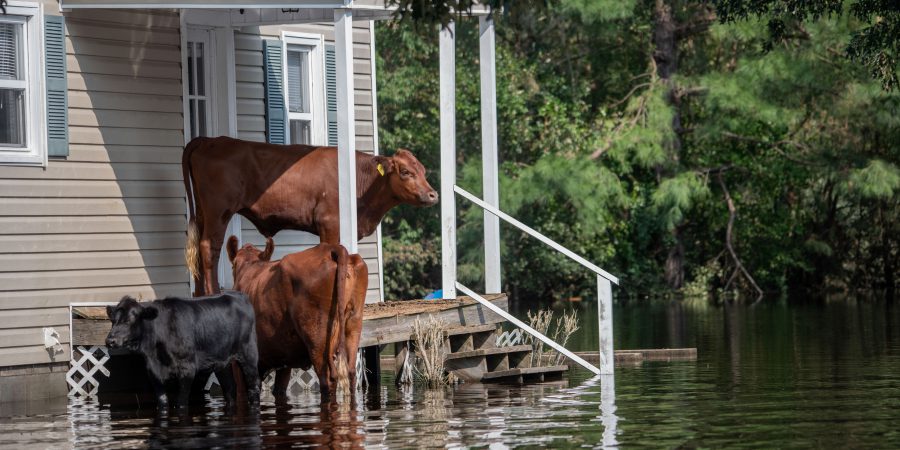Between wildfires, flooding, mudslides, and the risks of earthquakes, it’s important to be prepared for a natural disaster in BC and the impact it could have on your home. With information from the Insurance Council of British Columbia, here’s what you need to know.
What to do when your home is impacted by a natural disaster
According to the Insurance Council of British Columbia, here are the things you’ll want to consider doing if you ever experience serious property damage or displacement during and after a natural disaster.
1. Follow the guidance of the BC Government and your local municipality. You may be required to evacuate. Your safety and the safety of your family should be your top priority.
2. Pack your essential documents. If time and safety precautions allow, try to pack:
- All government issued documents (birth certificate, passport, driver’s licence, Social Insurance Number (SIN), marriage certificate, etc.)
- All insurance policy documents (e.g., home/rental, auto, etc.)
- Banking/financial information
- Utilities information (if you need to cancel or suspend services)
- Detailed home inventory list of all your valuables and possessions (If you don’t have this, consider doing it before disaster strikes as it’s helpful during the insurance process)
3. File an insurance claim as soon as possible.
- If you don’t know the name of your provider, call the Insurance Bureau of Canada at 1-844-2ASK-IBC
- Be prepared with your necessary documents, policy number, and any questions you may have about coverage, minimizing damage, and your temporary living arrangements
- Provide as much detail as you can about the damage to your property (including item descriptions and costs)
- Ask for a claim file number and document who you speak to (and when) each time you call
- Find out if you can use a contractor or supplier of your choice for repairs and your coverage for that
- If you are not staying on your property, consider posting your contact information on your front door for anyone who may need it
- Don’t be afraid to ask your adjuster questions
4. If you’re not fully covered, explore your options. If the provincial government declared that the event is eligible for Disaster Financial Assistance (DFA) and you’re not covered (or are partially covered) under insurance, you may be eligible for DFA. Your insurance company can help you apply and authorize your application for DFA. Learn more here.
5. Don’t be afraid to ask for help. Local organizations like the Canadian Red Cross provide services for those in need. Local food banks are also available, search for the location nearest you. Consider seeing a mental health professional to help you process the circumstances (find out if your employer covers this through your benefits). You can also access free or low-cost virtual mental health resources.
But what if I’m a renter?
If you’re a renter, you’re responsible for your belongings and the landlord is responsible for ensuring the rental property is habitable. Your landlord should also allow you to access your home when it is safe to do so. If you have tenant insurance, go through your policy or talk to your insurance representative to understand what’s covered. You can also contact the Residential Tenancy Board to learn your rights and responsibilities as a tenant.
For more detailed information about steps to take to care for your home following a natural disaster in BC, explore the Insurance Council of British Columbia’s website.
Questions or comments? Please share them with us below!
Did you like this? You might like these posts too!
5 things to budget for if you’re a new homeowner
Moving to a new place? Here are 8 things you can do to prepare
Rent increases: what are the rules in BC?
Top 3 tips if you are getting a mortgage
5 tips for setting up an “uh-oh” fund
About Consumer Protection BC
We are responsible for regulating specific industries and certain consumer transactions in British Columbia. If your concern is captured under the laws we enforce, we will use the tools at our disposal to assist you. If we can’t help you directly, we will be happy to provide you with as much information as possible. Depending on your concern, another organization may be the ones to speak to; other times, court or legal assistance may be the best option. Explore our website at www.consumerprotectionbc.ca.



I want a printed copy…why can I not print from my computer?
Hi Lorna, are you hoping to print our content on our website or some government forms? If you’re trying to print our blog content – “What to do when your home is impacted by a natural disaster” you should be able to print it. Please let us know if you have further questions.
The amount of money, if any, you’ll receive to replace your home, either by buying or building a new one, depends on your policy. Keep in mind that standard policies don’t include replacement value coverage; this is an additional option homeowners pay extra for in the case their home is completely destroyed. Just like if your home only sustains damage, if your home is completely destroyed in a severe weather event, you are still responsible for your monthly mortgage payments.
Generally I don’t read article on blogs, but I wish to say that this write-up very compelled me to try and do it!
Your writing style has been amazed me. Thanks, very
great article.
I was very pleased to find this page. I want to to thank you for your time just for this fantastic read!!
I definitely appreciated every bit of it and
I have you saved as a favorite to check out new stuff in your website.
Thanks Ila, glad you enjoy it!